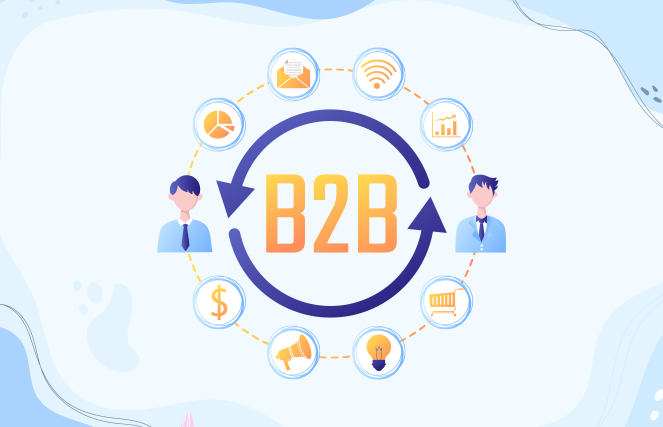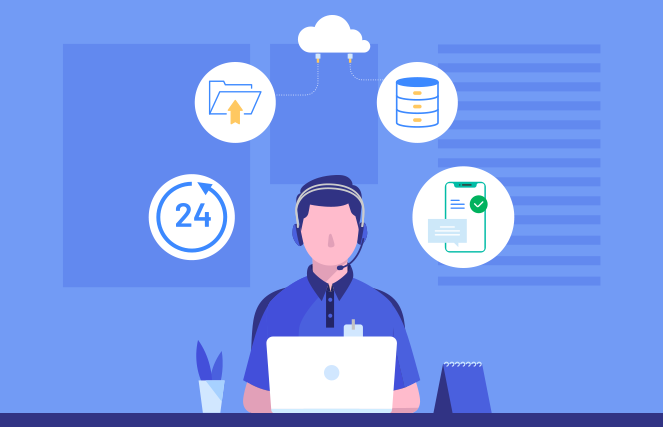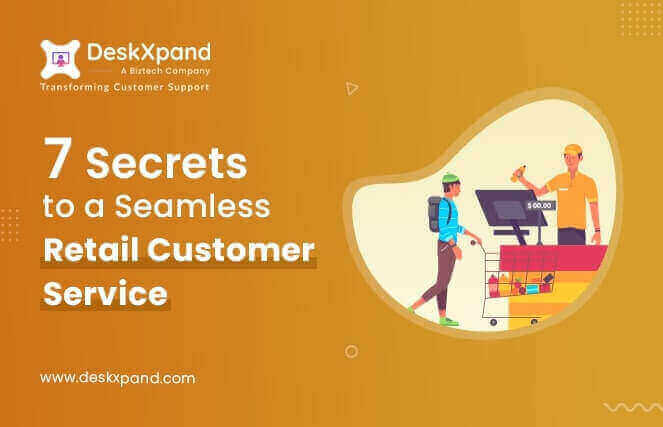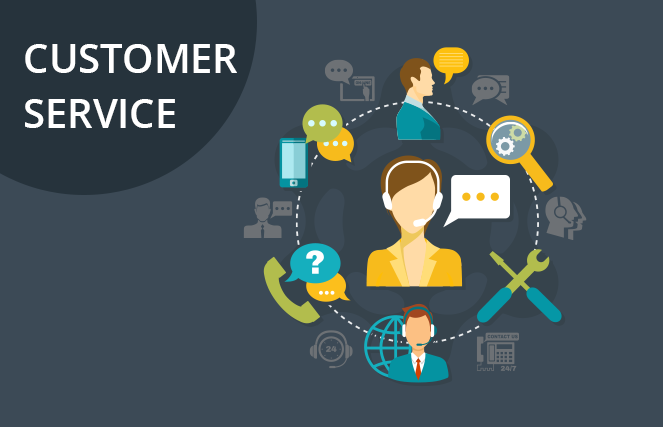What kind of brands do you think of when someone mentions good customer service? You’d probably think of brands like Disney, Zappos, or JetBlue Airlines. These are the correct answers, of course. But, it also shows the tendency that most of us have to think that good customer service exists only in the realm of B2C brands.
People rarely mention or know about companies that offer excellent customer service from the B2B domain. Go ahead. Try to name three B2B brands that are famous for their customer service. Was it tough? This makes things a little harder for people working in the area of B2B customer service. Now, if you are working in a B2B support service industry, things might get a little hard for you. Your customers are independent businesses, and they need to get stuff done. Plus, they want you to do it as quickly as possible.
B2B businesses usually expect efficient customer service. Sometimes they don’t want the “fun” customer service gimmicks that B2C brands seem to get away with. In this article, we’re going to talk about:
- Difference between B2C and B2B Customer Service
- Why B2B Brands Need To Get Particular About Customer Service
- B2B Customer service: 7 Best Practices
- Upgrade With The Latest B2B Customer Support Tools
Difference between B2C and B2B Customer Service
B2B companies are not typically known for being customer-centric. But a recent push for customer experience has put B2B customers at the center of strategic decisions. B2B executives believe that customer experience is significant to achieving their organizations’ strategic priorities, and many are finding innovative solutions like that of B2C. So, what is the difference between B2C and B2B customer service? Let’s find out.
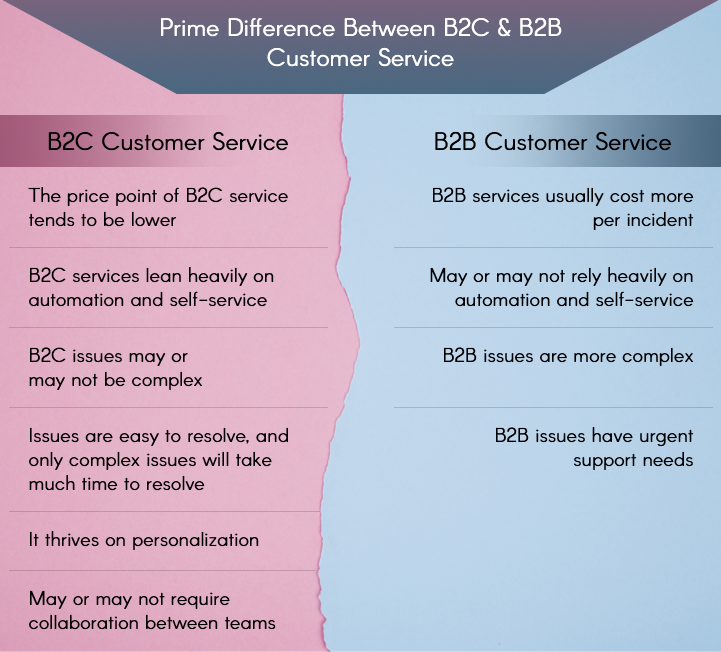
Why B2B Brands Need To Get Particular About Customer Support
Let’s say you buy a set of headphones online, but the pair you receive is damaged. The solution to this problem is simple enough. You can get in touch with a B2B support rep and just ask for a replacement. The request can be resolved without hassle or without too much effort.
OTOH, think if you have purchased a software tool for your company. But your users are not happy with it? Not only is this a problem for multiple users, but you also need to show a return on your investment. In such a scenario, customer service plays a critical role in whether you will continue using the product or churn in favor of other options. Here are some important reasons why b2b brands need to get particular about customer service:
1. B2B Companies Have Complex Issues
When you call a B2C brand’s customer support, it is mostly for common and quickly resolvable issues. For example, a refund on a damaged item or checking on the return status of any shipment. This process is pretty straightforward and hassle-free.
But the B2B customer service process is a little more complicated. This is because most B2B customer support requests tend to be technical. There is also an inevitable amount of back-and-forth. This is because B2B customer support teams often have to dive deep to resolve a customer issue.
2. Collaboration is a Key Factor in B2B
In the B2C industry, a single customer service agent might handle a customer’s request on their own because the nature of the service relationship is usually one-to-one. But in B2B, customer service teams often have to work with multiple stakeholders within one customer account.
In such a scenario, the customer service team is always the antidote to complexity. Companies should be able to offer a holistic and consistent B2B customer experience.
Essential Tip:
Use a B2B customer support solution that will help you connect all other support tools. This way, you will be able to funnel questions coming from every channel (phone, email, and social media) to one place.
Empower your B2B customer service with the latest collaboration tool.
3. It Involves More Stakeholders
Rather than communicating with a single person, B2B companies need to manage relationships with entire teams. Turnover is inevitable within these teams. So B2B companies can’t rely on a solid relationship with only one person. B2B customer service providers also will have to keep track of several teams using their product or service within one client company. Customer service agents will need to juggle a multitude of relationships and priorities.
4. B2B Brands Develop a Personal Relationship With Customers
Customer relationships are deep excel in a business-to-business service environment. It’s a paradox. Think about it. B2B customer service deals with multiple stakeholders at multiple points in time. And yet, over time, they develop a uniquely personal connection with their clients.
B2B customer support reps would need to know their customers on a first-name basis. They work with their clients for a relatively long time. Sometimes they work repeatedly, deepening these customer relationships over time.
5. Issue Resolution Takes Longer
I am not saying that B2B customer service teams are unnecessarily long-winded. But the complex nature of B2B customer support issues makes it difficult to resolve issues in a short period of time.
It is not like B2C customer service, where support reps simply have to fire off a two-line reply and be done with it. B2B customer service reps need time to study the issue, follow protocols, run tests, and ensure that everything is compliant.
B2B Customer Service: 7 Best Practices
So, now that it is clear that customer service is one of the key differentiators for almost every business, it is time to knock it out of the park. Stellar customer service in the B2B environment is even more critical because:
- You need to handle more people
- The stakes are high
- Each project/contract is valuable
Let’s look at seven tips for creating a better B2B customer service experience for your clients.
1. Know Your Customers Completely: Analytics For The Win
B2B customer support software is highly dependent on the relationship you have with your customers. You are providing customer service in the present and working towards building future relationships with your customers. Hence, your B2B customer service strategy has to be relationship-driven and personalized to its core.
Unlike the B2C space, B2B customer support teams deal with professionals and experts from other industries. Remember that your B2B clients are tech-savvy, data-empowered, and have their own set of customers to cater to.
Therefore, you must build a customer-centric strategy and support culture that positions you as a partner in your customer’s growth and success. You can offer your customers contextual, tech-enabled, technically superior, and long-term solutions that align with their business goals and will help them achieve them.
2. Build An Omnichannel Support
Every B2B customer has a unique set of problems to solve. Sometimes, they might even call you to solve issues like managing their software’s performance. They might also have more advanced questions related to scaling product usage.
This naturally calls for a cross-functional collaboration between multiple teams and experts in your (and your client’s) company. In such a situation, you have to ensure that the groundwork for collaboration and clear communication is in place. For example, you might need a collaboration tool that automatically syncs your data from your CRM to your B2B helpdesk. This means all your customer-facing teams, such as marketing, sales, and customer support, can have easy access to your client’s data.
You no longer need to email or message each other to find answers to simple questions like:
- When did any particular customer last contact us?
- What product did they purchase from us?
- What is the common type of query that you receive from your customers?
Essential Tip:
A good collaboration hub is key to providing a uniform and personalized CX to each customer, regardless of wherever they are in their customer service journey. Other times, you may want software that will let every team in your business see your customer data through a central dashboard.
You can also streamline your online channels and make the entire process omnichannel so that you’ll be able to monitor support requests from different channels (like live chat, phone, email, and social media) through a single dashboard.
3. Service Level Agreements For The Win
All customer requirements are not similar. Some B2B customer service requirements are more complicated than others. For example, government entities need on-premises solutions for security reasons. Some companies (like healthcare companies) might have compliance-related issues.
But most B2B customer service work on a first-come, first-served model. You cannot prioritize one customer over another. Unless, of course, you have a proper prioritization system in place. This is where SLAs come into the picture.
SLAs define the standards of service you expect from the B2B brand, laying out the metrics by which your services are measured. The SLAs are somewhat like prenuptial agreements. It is a mutual understanding between you and your client, the service you can offer them (including customer support), your responsibilities, and their availability. Because it is signed before you enter into a sales contract, it sets the right expectations about your support capabilities and limitations.
SLAs can help you re-prioritize your support tickets based on your existing support bandwidth, the severity of issues, and their complexities. It also includes the penalties that would be charged when the service levels are not achieved. It is a critical component of any business trying to ace and provide better customer support. It includes:
- Lifecycle Tracking
- Simplified SLA Target Creation
- Prevent Potential Breaches
- Custom Alerts and Notifications
- Measure SLA Performance
Since we’re talking about SLAs, did you know with DeskXpand, you can enable all the above-mentioned service level agreements? No? Check it out yourself!
4. Keep It Human
Automation and self-service reign in B2C industries. But for B2B customer service, the people you’re speaking with really want a human connection. Many customers still choose to interact with human agents when they cannot find the answers themselves. Plus, sometimes B2B issues are more complicated, so customers would like to resolve them by taking help from customer support reps only.
For complicated issues, human empathy and understanding are crucial. Plus, an empathetic response is capable of surprising and delighting customers. Robots, on the other hand, while efficient, are not usually delightful. So while you’re considering ticket deflection methods and canned responses, you can try to keep every interaction grounded in humanity. Following are some tips that may work:
- Use phrasing that feels human in the autoresponders
- Keep your channels (especially your phone lines) well-staffed to avoid long queues.
- Find relevance to using automation that doesn’t interrupt the natural human flow.
5. Provide Self-Service Options
B2B customer service issues are very high-touch and demanding. On the other hand, many companies have internal experts who can take care of their problems independently. They just need a little help to solve those problems. All they need is maybe a little nudge from your side.
This is where you can help them by offering self-service support options. For example, you can create a support page to post frequently asked questions (FAQs), other documentation guides, how-to guides, video tutorials, knowledge base articles, etc.
Self-service support has many advantages, not just for your clients but also for your business workflow. It is always scalable and always available to help your customers. Plus, it takes a massive load off of your team when it comes to technical questions. Hence, self-service is essential for B2B customer service.
Essential Tip:
If you have a good self-service muscle, it will help your support team run more efficiently. This will let you focus on the complicated questions that need a human to resolve.
6. Try To Become As Proactive As Possible
When it comes to your business success, the future is in the hands of brands that can offer proactive customer service. Think of any B2B brand that is successful by objective standards. Now think and observe what makes them different from their average competition. More often than not, there is a difference in their products and service and the quality of their customer support.
Having proactive customer support is a competitive advantage in today’s hyper-competitive business environment. It can lead to higher customer lifetime value and retention for most B2B customers. Making your support proactive also helps you create a direct customer feedback loop so that you can take care of minor problems before they escalate.
7. Listen To and Implement Customer Feedback
When a customer offers you constructive feedback from surveys, how do you respond? Most companies roll their eyes at the customer comments or call them “ridiculous.” But for B2B businesses, even the comments that seem out of the world are worthy of attention.
Most consumers feel more favorable if a company actively considers and acts on their feedback. Instead of rolling your eyes at customer surveys, try to understand their perspective. Try to understand where they’re coming from. Even the wildest requests have roots in reality. For instance, if someone asks for something, take time to ask them what they’re looking to do with the feature rather than simply dismissing it as unrealistic.
Upgrade With The Latest B2B Customer Support Tools
Once you start focusing on empowering your B2B customer support teams internally, it’ll make a real impact at a company-wide level. You need to encourage your team members to read through customers’ feedback and reach out for clarity wherever possible. Moreover, you will also need to empower your team with the latest B2B client management tools and technology.
Adopt DeskXpand today and take care of your customers. Your customers will reward you with their unprecedented loyalty, honesty, and continued trust. DeskXpand helpdesk system aims at helping businesses build continued trust with their customers throughout their entire lifecycle.
With DeskXpand, you can:
- Offer personable services and personalized experience
- Manage your customer from a single interface
- Analyze your support and generate reports easily
- Manage all the ticketing information through integrated third-party tools
- Provide support on communication channels of your choice
It is time to ditch your legacy B2B helpdesk tools. Try DeskXpand now! We are an ISO27001-certified B2B customer support software development company trusted by users worldwide for 14+ years now.

